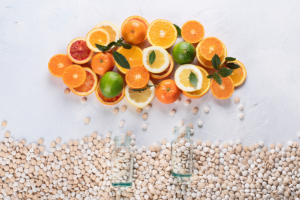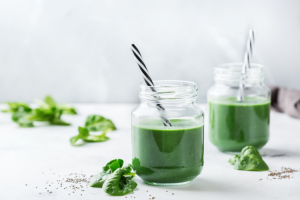Green shots, and probiotics, and multivitamins, oh my…
It’s easy to get lost in the plethora of supplements flooding the market right now, each boasting an impressive list of health benefits. But we’ve also seen a lot of research in recent years about the benefits of whole foods.

Read on as we dive into the world of wellness to answer some of your questions:
Do vitamins and supplements work?
Yes and no.
The FDA does not monitor vitamins and supplements, so their ingredients and health benefits may not be verified.
Your body can absorb some nutrients from supplements, but they may not make a noticeable impact. Recent studies have revealed that claims of multivitamins preventing heart disease, cancer, or other diseases don’t have much basis.
While an extra vitamin and mineral boost usually won’t hurt you, it begs the question:
Is it possible to get too many vitamins and minerals?
Yes.

If you take a multivitamin, make sure it’s not providing an overabundance (i.e. double or more of the daily value).
Which is better: supplements or whole foods?
Overall, whole foods.

A simple apple is like a multivitamin in and of itself, containing fiber, potassium, vitamin C, vitamin B6, and magnesium.
Registered Dietician, Brigitte Zeitlin, was quoted in an article by Shape saying, “You get so much more nutritional bang for your buck by eating produce rather than drinking supplements.”
Are supplements worth taking at all?
For some, yes. For others, not really.
Supplements are not useless. They may be prescribed for certain medical conditions, such as providing additional folic acid to pregnant women, but aren’t necessary for everyone.
If you do consume them, supplements should remain just that – a supplement. They do not serve as a replacement for nutrients gained through food. As long as you’re eating plenty of fruits and vegetables, you should get all the nutrients you need!
